Filter by

Corporate memory : records and information management in the knowledge age
Corporate memory' is the body of information that an organization needs to keep for re-use. It is the active and historical information that an organization has that is worth sharing, managing and preserving to enable it to function effectively. This book is aimed at records managers and archivists, who are responsible for maintaining and managing information within an organization. It describe…
- Edition
- 32
- ISBN/ISSN
- 9783598440113
- Collation
- xi, 156 p
- Series Title
- -
- Call Number
- 658.4038 KEN c
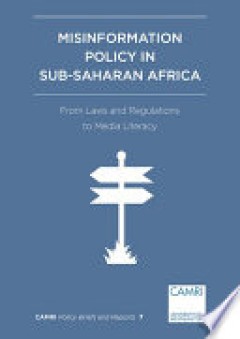
Misinformation policy in Sub-Saharan Africa : from laws and regulations to me…
Misinformation Policy in Sub-Saharan Africa is a single volume containing two research reports by eight authors examining policy towards misinformation in Sub-Saharan Africa. The volume first examines the teaching of ‘media literacy’ in state-run schools in seven Sub-Saharan African countries as of mid-2020, as relates to misinformation. It explains the limited elements of media and informa…
- Edition
- 6
- ISBN/ISSN
- 9781914386053
- Collation
- iii, 224 p
- Series Title
- CAMRI Policy Briefs and Reports, 8
- Call Number
- 302.230967 DIA
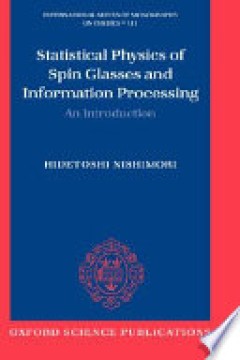
Statistical physics of spin glasses and information processing : an introduction
Spin glasses are magnetic materials with strong disorder. Statistical mechanics has been a powerful tool to theoretically analyse various unique properties of spin glasses. A number of new analytical techniques have been developed to establish a theory of spin glasses. Surprisingly, these techniques have offered new tools and viewpoints for the understanding of information processing problems, …
- Edition
- -
- ISBN/ISSN
- 9780198509400
- Collation
- vi, 256 p
- Series Title
- International Series of Monographs on Physics,
- Call Number
- 530.413 NIS

The Future Internet: Future Internet Assembly 2011: Achievements and Technolo…
In the near future, the high volume of content together with new emerging and mission critical applications is expected to stress the Internet to such a degree that it will possibly not be able to respond adequately to its new role. This challenge has motivated many groups and research initiatives worldwide to search for structural modifications to the Internet architecture in order to be able …
- Edition
- 1
- ISBN/ISSN
- 9783642208980
- Collation
- XVI, 465p
- Series Title
- Lecture Notes in Computer Science
- Call Number
- 004.678 TFI m
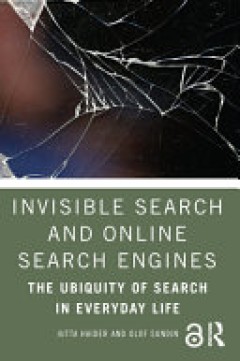
Invisible search and online search engines : the ubiquity of search in everyd…
Invisible Search and Online Search Engines considers the use of search engines in contemporary everyday life and the challenges this poses for media and information literacy. Looking for mediated information is mostly done online and arbitrated by the various tools and devices that people carry with them on a daily basis. Because of this, search engines have a significant impact on the structur…
- Edition
- -
- ISBN/ISSN
- 9781138328617
- Collation
- -
- Series Title
- -
- Call Number
- 025.0425 HAI

Paradoxes of Media and Information Literacy
Paradoxes of Media and Information Literacy contributes to ongoing conversations about control of knowledge and different ways of knowing. It does so by analysing why media and information literacy (MIL) is proposed as a solution for addressing the current information crisis. Questioning why MIL is commonly believed to wield such power, the book throws into sharp relief several paradoxes that a…
- Edition
- -
- ISBN/ISSN
- 9781000590265
- Collation
- 174 p
- Series Title
- -
- Call Number
- 028.7 DER P
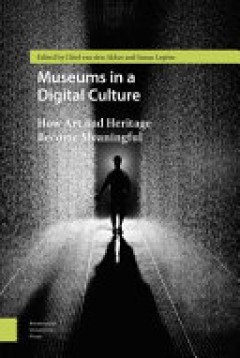
Museums in a digital culture : how art and heritage become meaningful
The experience of engaging with art and history has been utterly transformed by information and communications technology in recent decades. We now have virtual, mediated access to countless heritage collections and assemblages of artworks, which we intuitively browse and navigate in a way that wasn't possible until very recently. This collection of essays takes up the question of the cultural …
- Edition
- -
- ISBN/ISSN
- 9789089646613
- Collation
- -
- Series Title
- -
- Call Number
- 069.02854 VAN m
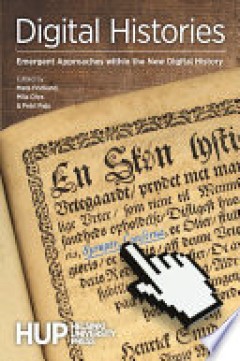
Digital Histories: Emergent Approaches within the New Digital History
Historical scholarship is currently undergoing a digital turn. All historians have experienced this change in one way or another, by writing on word processors, applying quantitative methods on digitalized source materials, or using internet resources and digital tools. Digital Histories showcases this emerging wave of digital history research. It presents work by historians who – on their ow…
- Edition
- -
- ISBN/ISSN
- 9789523690219
- Collation
- -
- Series Title
- -
- Call Number
- 025.069 FRI d

Imagining personal data : experiences of self-tracking
Digital self-tracking devices and data have become normal elements of everyday life. Imagining Personal Data examines the implications of the rise of body monitoring and digital self-tracking for how we inhabit, experience and imagine our everyday worlds and futures. Through a focus on how it feels to live in environments where data is emergent, present and characterized by a sense of uncertain…
- Edition
- -
- ISBN/ISSN
- 9781003085676
- Collation
- x + 161 p
- Series Title
- -
- Call Number
- 303.4834 FOR i
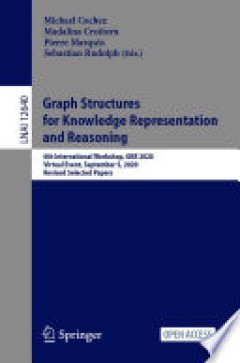
Graph structures for knowledge representation and reasoning : 6th internation…
This open access book constitutes the thoroughly refereed post-conference proceedings of the 6th International Workshop on Graph Structures for Knowledge Representation and Reasoning, GKR 2020, held virtually in September 2020, associated with ECAI 2020, the 24th European Conference on Artificial Intelligence. The 7 revised full papers presented together with 2 invited contributions were revie…
- Edition
- -
- ISBN/ISSN
- 9783030723088
- Collation
- IX, 151 p
- Series Title
- -
- Call Number
- 006.332 MIC g
 Computer Science, Information & General Works
Computer Science, Information & General Works  Philosophy & Psychology
Philosophy & Psychology  Religion
Religion  Social Sciences
Social Sciences  Language
Language  Pure Science
Pure Science  Applied Sciences
Applied Sciences  Art & Recreation
Art & Recreation  Literature
Literature  History & Geography
History & Geography